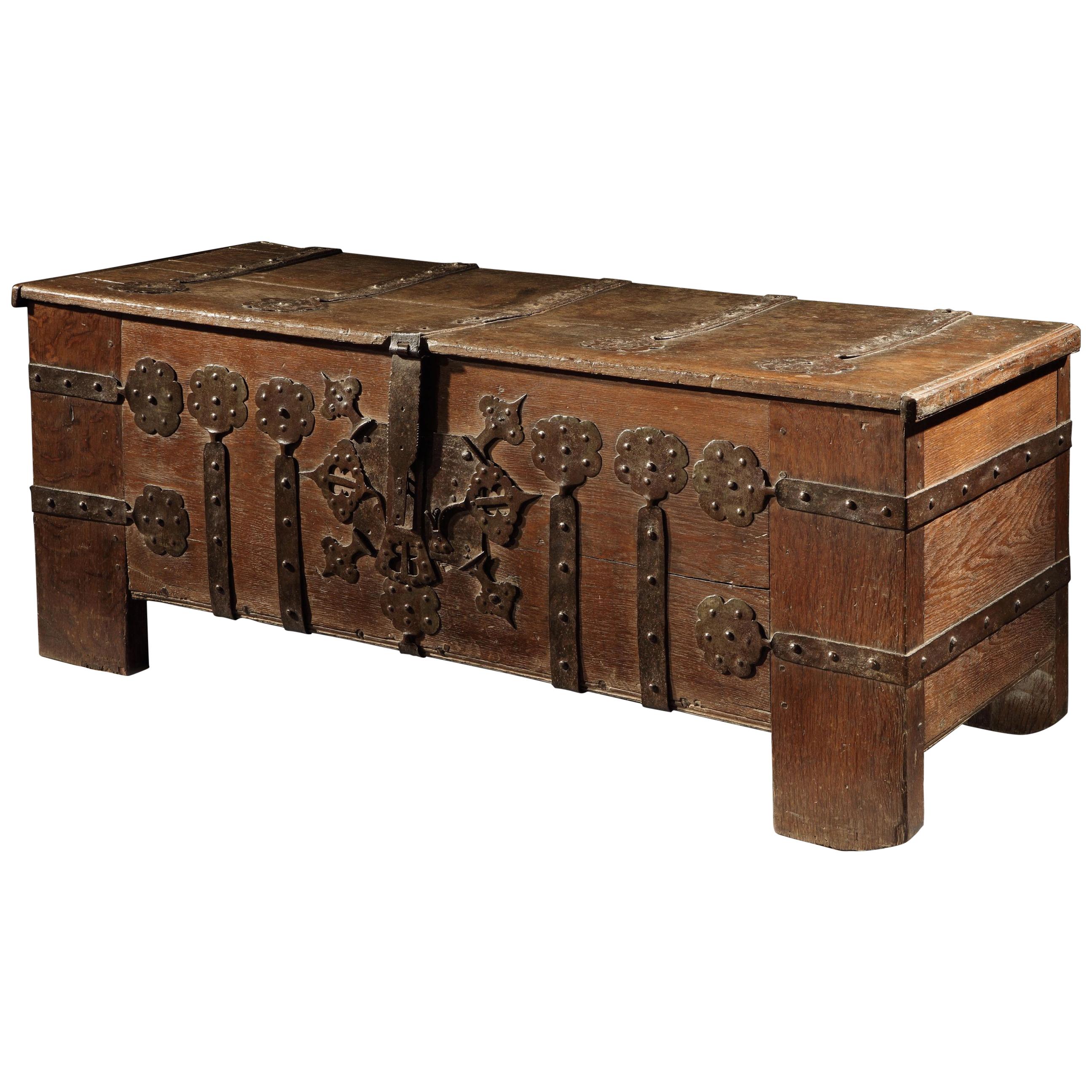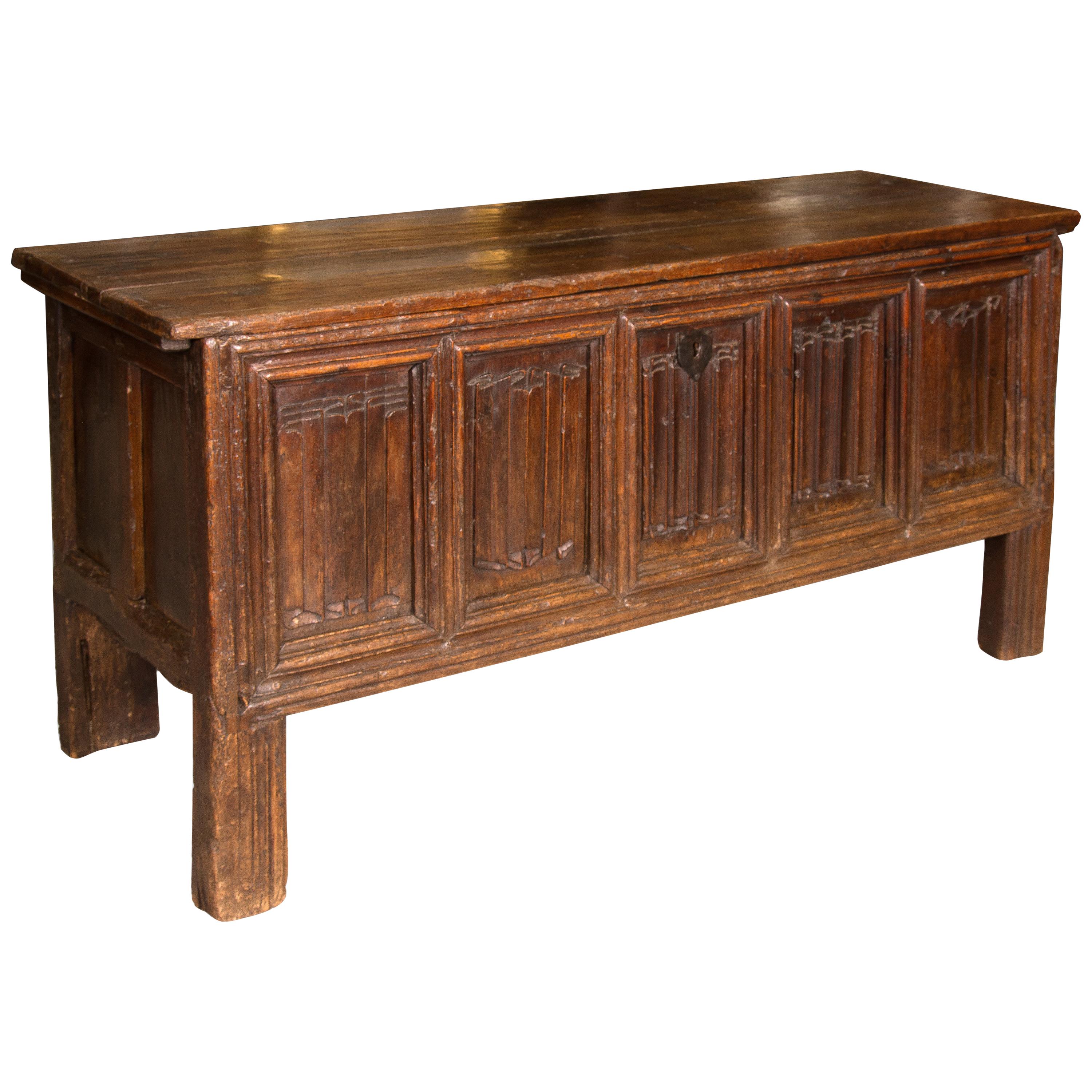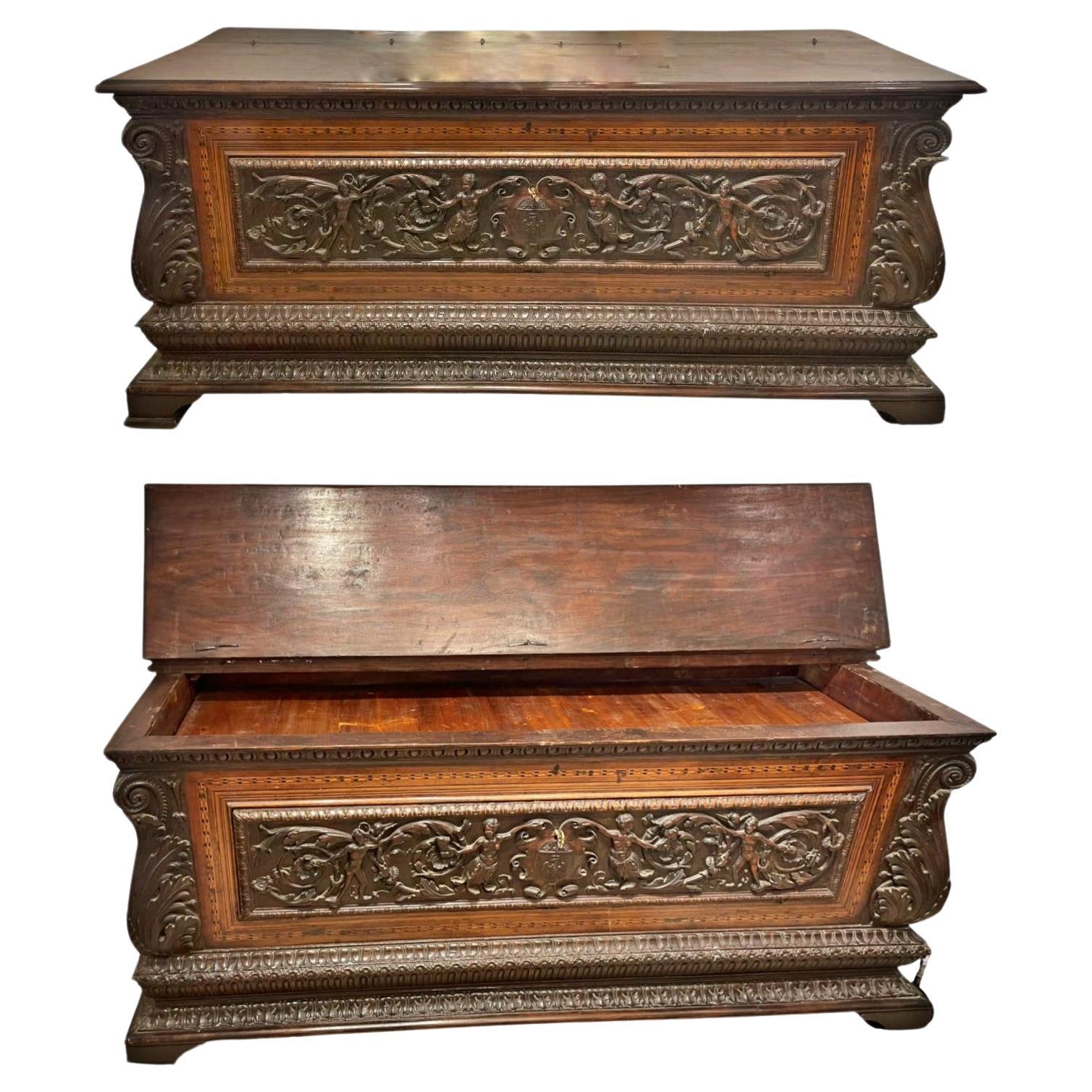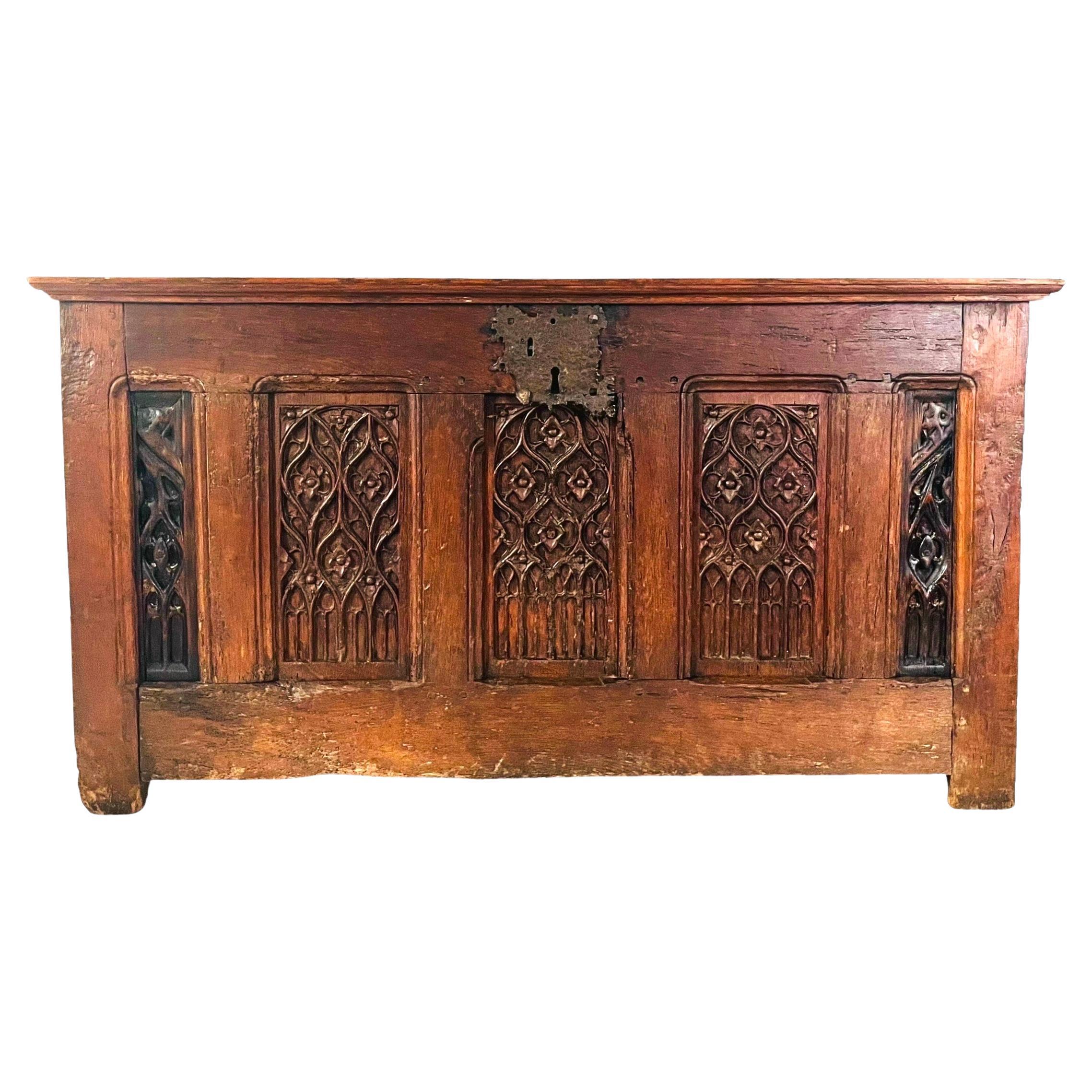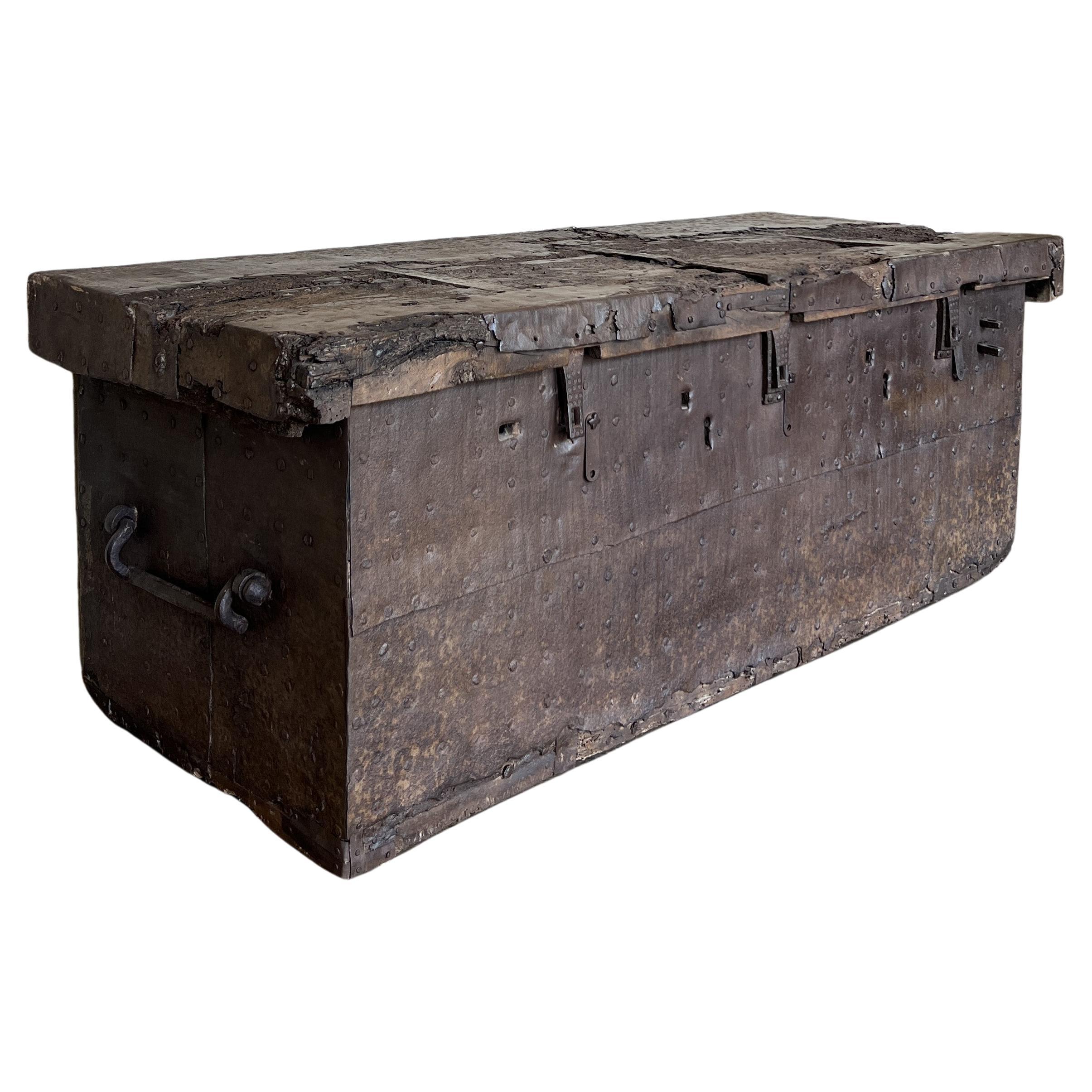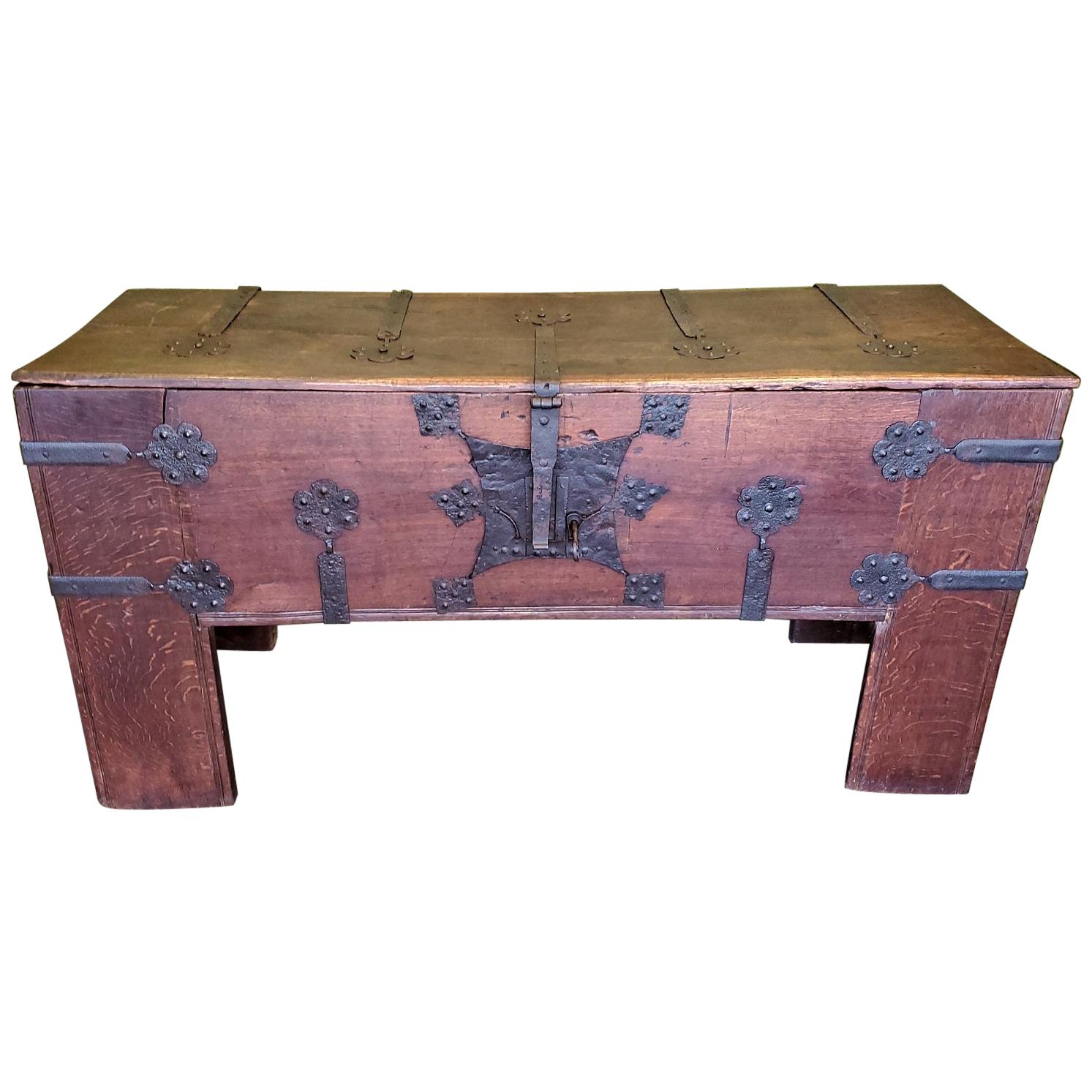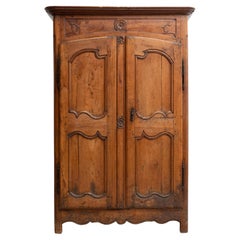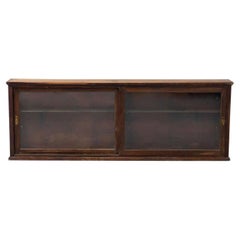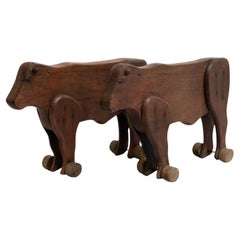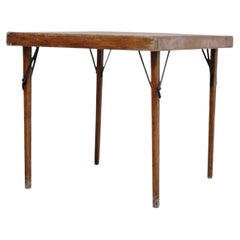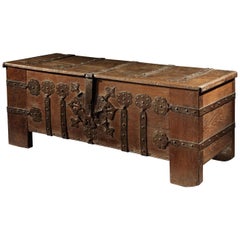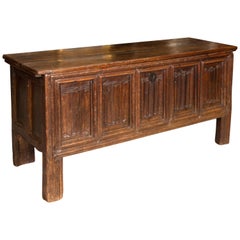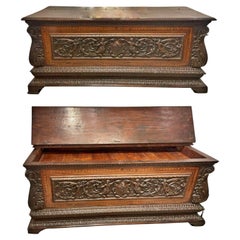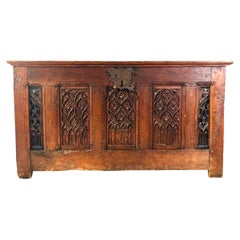Items Similar to Gothic 16th Century Wood Chest
Want more images or videos?
Request additional images or videos from the seller
1 of 18
Gothic 16th Century Wood Chest
About the Item
Gothic oak chest from 16th century with paneled lid and 4 linenfold panels in the front,
circa 1500-1530
From the low countries, (Netherlands).
In good original condition, with minor wear consistent with age and use, preserving a beautiful patina.
- Dimensions:Height: 30.71 in (78 cm)Width: 57.88 in (147 cm)Depth: 22.45 in (57 cm)
- Style:Gothic (Of the Period)
- Materials and Techniques:
- Place of Origin:
- Period:
- Date of Manufacture:Circa 1500
- Condition:Wear consistent with age and use.
- Seller Location:Barcelona, ES
- Reference Number:1stDibs: LU1427243985642
About the Seller
4.9
Platinum Seller
Premium sellers with a 4.7+ rating and 24-hour response times
Established in 2015
1stDibs seller since 2015
1,829 sales on 1stDibs
Typical response time: 5 hours
- ShippingRetrieving quote...Shipping from: Barcelona, Spain
- Return Policy
Authenticity Guarantee
In the unlikely event there’s an issue with an item’s authenticity, contact us within 1 year for a full refund. DetailsMoney-Back Guarantee
If your item is not as described, is damaged in transit, or does not arrive, contact us within 7 days for a full refund. Details24-Hour Cancellation
You have a 24-hour grace period in which to reconsider your purchase, with no questions asked.Vetted Professional Sellers
Our world-class sellers must adhere to strict standards for service and quality, maintaining the integrity of our listings.Price-Match Guarantee
If you find that a seller listed the same item for a lower price elsewhere, we’ll match it.Trusted Global Delivery
Our best-in-class carrier network provides specialized shipping options worldwide, including custom delivery.More From This Seller
View AllEarly 20th Century Antique Traditional Spanish Wood Wardrobe
Located in Barcelona, Barcelona
Traditional rustic wood dresser.
Made by unknown artisan from Spain, circa 1930.
In original condition, with minor wear consistent with age a...
Category
Early 20th Century Spanish Rustic Wardrobes and Armoires
Materials
Wood
$8,798 Sale Price
20% Off
French, 20th Century, Vintage Glass and Wood Vitrine Showcase, circa 1950
Located in Barcelona, Barcelona
Vintage glass and wood showcase.
By unknown manufacturer from France, circa 1950.
In original condition, with minor wear consistent with age and use, preserving a beautiful patin...
Category
Vintage 1950s French Mid-Century Modern Vitrines
Materials
Glass, Wood
$4,166 Sale Price
20% Off
Set of Two Early 20th Century Rustic Traditional Wood Cow Sculptures
Located in Barcelona, Barcelona
Set of Two Early 20th Century Rustic Traditional Wood Cow Sculptures.
Manufactured in France.
In original condition with minor wear consistent of age and use, preserving a beautiful...
Category
20th Century French Rustic Animal Sculptures
Materials
Wood
$1,666 Sale Price / set
20% Off
Early 20th Century Wood Thonet Folding Table T211
By August Thonet
Located in Barcelona, Barcelona
Rare Folding table T211 designed by Thonet manufactured In Germany, circa 1930.
In good original condition, with minor wear consistent with age and use, preserving a beautiful pat...
Category
Vintage 1930s German Mid-Century Modern Coffee and Cocktail Tables
Materials
Wood
$3,240 Sale Price
20% Off
Le Corbusier LC16 Writing Wood Desk and Shelve by Cassina
By Cassina, Le Corbusier
Located in Barcelona, Barcelona
Writing desk designed by Le Corbusier in 1957. Relaunched in 2010.
Manufactured by Cassina in Italy.
Defying the laws of physics, going beyond what we normally understand by the ...
Category
2010s Italian Mid-Century Modern Desks and Writing Tables
Materials
Wood
Le Corbusier LC16 Writing Wood Desk and Shelve by Cassina
By Cassina, Le Corbusier
Located in Barcelona, Barcelona
Writing desk designed by Le Corbusier in 1957. Relaunched in 2010.
Manufactured by Cassina in Italy.
Defying the laws of physics, going beyond what we normally understand by the conditions of equilibrium, this bookcase is nothing short of a manifesto for Cassina’s design and construction capabilities. After a lengthy period of research and development, ably assisted by state-of-the-art technology, the company’s designers created a production prototype of the original 1940 piece that architect Franco Albini made as a one-off for his Milan home. Respecting the authentic underlying concept of the design, with its compelling experimental feel, as well as its surprisingly spare, linear looks, today’s model preserves the minimal ideal of the original: a feeling of air and light so that the books and objects seem to float free. Thus does Cassina restore to the contemporary world of design one of its most emblematic artefacts, a piece that has acquired the status of a work of art, as magical now as it was when it was first seen.
Important information regarding images of products:
Please note that some of the images show other colors and variations of the model, these images are only to present interior design proposals. The item that is selling is on the first image.
Important information regarding color(s) of products:
Actual colors may vary. This is due to the fact that every computer monitor, laptop, tablet and phone screen has a different capability to display colors and that everyone sees these colors differently. We try to edit our photos to show all of our products as life-like as possible, but please understand the actual color may vary slightly from your monitor
About the designer:
Charles-Edouard Jeanneret, known as Le Corbusier, was born in La Chauxde-Fonds, in the Swiss Canton of Jura, in 1887; and died in France, in Roquebrune-CAP-Martin, on the French Côte d'Azur, in 1965.
At the beginning of his career, his work was greeted with some reluctance due to its supposed "revolutionary" character and the radical aspect it acquired through his "purist" experiments; In any case, already at that time, he received the recognition he deserved and the admiration of the majority. His message is still being assimilated by an increasing number of people in the profession, but his eccentric avant-garde attitude should be properly taken into account for the use of rational systems in his planning method, as reflected in extremely simple modules and forms based on functional logic.
"A functionalism that does not tend to exalt the mechanical function to the detriment of the symbolic but rather to the rejection of the symbol, which he now considers obsolete and insignificant, and the recovery of the practical function as a symbol of new values" (¹)
In his activities as an urban planner, architect and designer, his method of study continued to develop, sometimes going from one extreme to another in a complex plastic language. Some examples of this are:
Unité d'Habitation, Marseille (1946-52);
the Chapel in Ronchamp (1950-55);
the Dominican Monastery «La Tourette» (1951-56);
the Zurich Center (1964-65)
the Hospital in Venice (1965).
The same dedication will be found in the design of diverse furniture, such as: the furniture of "Equipement intérieur de la maison" (tables, chairs, sofas and armchairs) designed for the Salon d'Automne in 1928 with Pierre Jeanneret and Charlotte Perriand and “Casiers Standard...
Category
2010s Italian Mid-Century Modern Desks and Writing Tables
Materials
Wood
You May Also Like
Chest or Stollentruhe, Early 16th Century, German Gothic, Oak Chest, Original
Located in BUNGAY, SUFFOLK
This standing chest is of clamp-front construction, extensively decorated with long, ironwork straps with quatrefoil finials which ‘wrap’ around it, and has an ornate, central lockplate, and front legs with full, height stiles. The ironwork straps and finials are fixed with convex, headed nails: running along the front, five long straps; the two side straps; and the five straps on the top. On the chest front, centrally placed, is a large, iron lockplate with four outer, radiating spade finals in each corner and three, superimposed spade finials (a symbol of nobility) which are pierced with the initials ‘BB’. The lockplate receives a corresponding, external hasp fitted to the lid. Below the floor of the chest, the two front stile legs retain most of their original height. The lid is supported by substantial iron strap hinges that extend right down the back of the chest. Inside the chest at the left end is a shallow, oak till.
Construction The chest is of joined, 'clamp-front' construction, reinforced by the nailed, iron mounts. In total it uses ten, oak boards which were riven and planed. The back and front are each formed from a large single plank held to the full height stiles by long, pegged tenons. The sides are also single boards joined into the stiles using long tenons held by dowels, and extend down below the chest bottom, concealing the ends of the bottom boards. The bottom consists of a single board cut into the sides and shallow rebates in the stiles. The front and back boards are dowelled into the bottom boards. The lid which overhangs the sides has a narrow cleat at each end, and consists of one wide plank which has bowed a little as a result of shrinkage.
Ironwork : The wrought ironwork straps, lockplate, hasp and lock all appear all appear to be early, and of the same original manufacture and are fixed with convex headed nails. There is mild dark staining of the oak around the iron mounts, possibly because of low tannin content in the oak.
Length 172 cm., 67 ¾ in., Height 71.5 cm., 28 ¼ in., Depth 63 cm., 24 ¾ in.,
Related to: No 900:2-1904 V&A Museum, London. Stadtmuseum Dusseldorf. Decorative Arts Museum Berlin. Museen Schleswig-Holstein & Hamburg. A related example featuring elaborately-carved feet and formerly in the Horsham Museum, West Sussex, sold at Christie's in 2010 for £97,250 and another example, again with carved feet sold at Sothebys in 2006 for £48,000.
Literature: A similar example is illustrated in H. Lüttgens, Alt- Aachener Wohnkultur; Ein Rundgang durch ein altes Aachener Haus im Wohnstil des 18. Jahrhunderts, Aachen, n.d., ill. 12, and another comparable iron-bound chests...
Category
Antique 16th Century German Gothic Blanket Chests
Materials
Oak
16th Century Gothic Chest, Pinewood, Metal
Located in Madrid, ES
The relief of folded cloths was common in the Gothic furniture, coming from Flanders in the 15th century and used in Spain in a common way well into the 16th century, although 17th c...
Category
Antique 16th Century Spanish Renaissance Blanket Chests
Materials
Metal
Amazing Chest, Italy, late 16th century
Located in Madrid, ES
Amazing Chest, Italy, late 16th century
93 x 214 x 74 cm
Rectangular shaped chest, in walnut wood. Four bracket feet, with four corners with sculpted leaves. Table top with owl's bea...
Category
Antique 16th Century Italian Gothic Blanket Chests
Materials
Wood
French Large Trunk- Chest - Gothic oak from the 16th century - France
Located in Beuzevillette, FR
Large solid oak chest from the 16th century Gothic period
Very pretty French, Norman work.
Decorated with Gothic motifs on 5 panels on the facade.
Note reassembly in the 18th and 19...
Category
Antique 16th Century French Gothic Blanket Chests
Materials
Wood
16th century large chest strongbox iron and walnut
Located in Vosselaar, BE
A quite large 16th century Italian so called 'coffre fort' . Coffers or chest like these were specifically made for cities or large villages to safegueard the gold and valuables. The...
Category
Antique 16th Century Italian Gothic Blanket Chests
Materials
Iron
Rare (Late Medieval) 16th Century German Wrought Iron Oak Chest or Stollentruhe
Located in Dallas, TX
WE HAVE THE PLEASURE TO PRESENT an Exceptionally Rare (Late Medieval) 16th Century German Wrought Iron Oak Chest or Stollentruhe.
This is an Early...
Category
Antique 16th Century German Gothic Blanket Chests
Materials
Wrought Iron
Recently Viewed
View AllMore Ways To Browse
Wood Chests
Beautiful Chest
Antique Gothic
Gothic Antique Furniture
Gothic Living Room
1500 Century
Wood 16th Century
16th Century Wood Furniture
Gothic Wood Furniture
Netherlands 16th Century
Antique Gothic Wood
Low Chest
Low Storage Chest
Gothic Oak Cabinet
16th Century Gothic
16th Century Wood Chest
Linenfold Antique Furniture
Linenfold Panel
